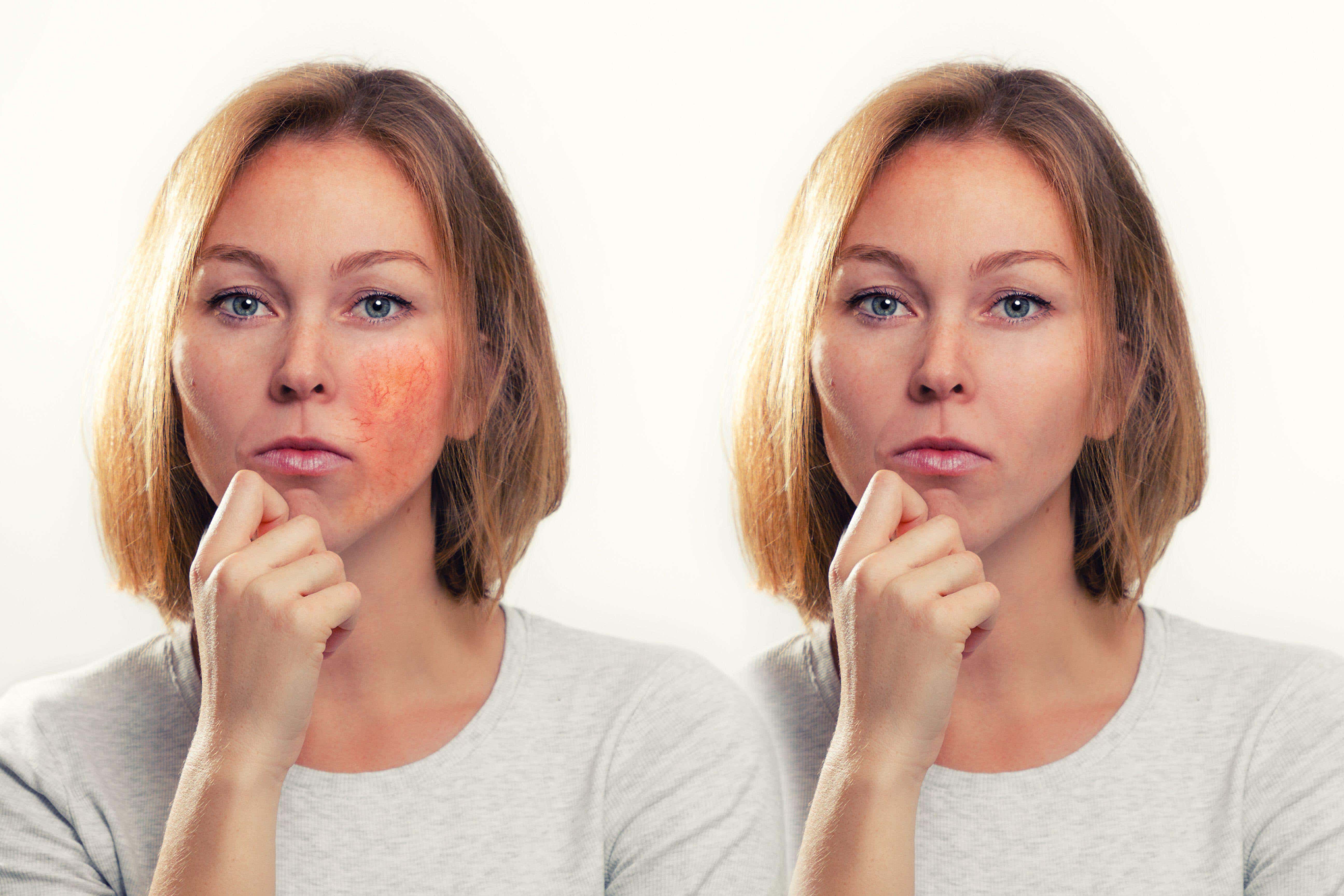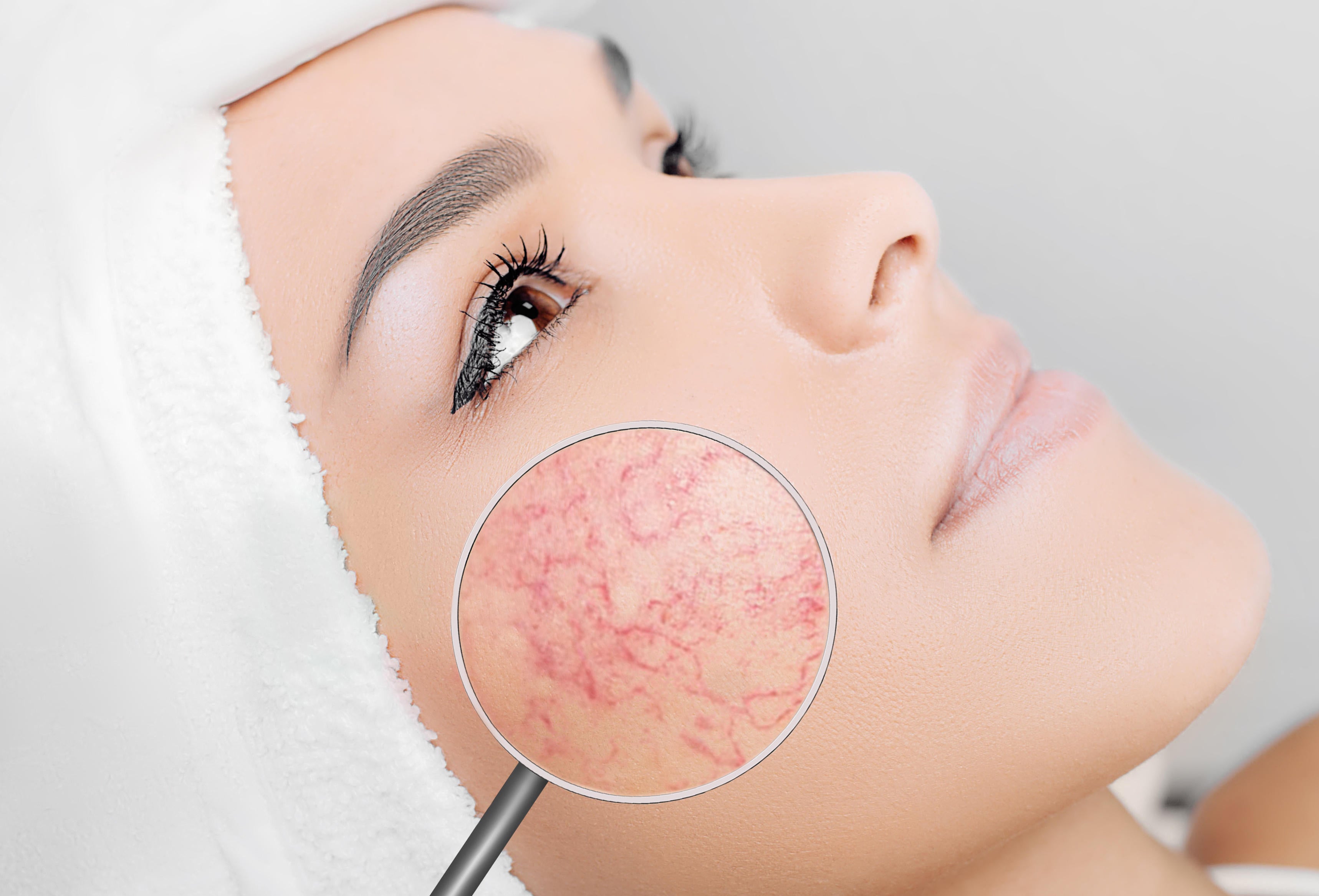When you should be worried about your rosy cheeks: Experts highlight signs of rosacea
Rosacea can also be genetic and often red rosy cheeks are considered a familial feature

Rosacea isn’t spoken about often and can often be confused for acne.
According to the National Rosacea Society, rosacea is a long-term chronic skin condition that affects the central part of the face.
Even though it can develop at any age, patient surveys have shown that most people who suffer from rosacea are aged 30 and above.
Some skin changes can progress over years, so symptoms of flushing and skin sensitivity are not attributed as early signs of rosacea.
“Rosacea can also be genetic and often red rosy cheeks are considered a familial feature, therefore rosacea goes undiagnosed,” said Dr Zainab Laftah, consultant dermatologist at GetHarley,
What are the early signs and symptoms of rosacea?
For Dr Zainab Laftah often the earliest sign of rosacea is sensitive skin and flushing with heat and alcohol.
“Typically patients report burning or stinging sensation with fragrance products or products that can leave the skin feeling dry,” she said.
What causes rosacea?
Like many skin conditions, rosacea can be exacerbated.
“[This can be] by sudden changes in light and temperature but it tends to be a long-term condition,” said Phil Day, superintendent pharmacist at Pharmacy2U.
“No one really knows the root cause of rosacea, but there are triggers that have been known to make it worse. These are usually lifestyle factors, such as alcohol, spicy food, hot drinks, or sometimes vigorous exercise and stress.”

Though the cause of rosacea is unknown, it’s considered to be multifactorial.
Laftah added: “The skin microbiome is altered with a dysregulation in the immune response, resulting in excess inflammation, and increased and dilated blood vessels. There is genetic susceptibility and known environmental triggers including sunlight and heat.”
How can you treat it?
Treatment consists of avoiding and limiting the known triggers, for example alcohol and spicy foods.
“Skincare is also important,” said Laftah.
“Gentle cleansers and moisturisers, with a daily sunscreen are recommended. If significant inflammation is present then prescription-grade creams and/or oral medication may be required. Lasers can be used to treat dilated blood vessels.”
Day added: “If you feel you may have symptoms of rosacea, it’s best to get in contact with your GP or visit your local pharmacist.”
Triggers
It’s not known what causes rosacea, but some things can make symptoms worse. The NHS lists:
Common triggers for rosacea include:
- alcohol
- spicy foods
- hot drinks
- sunlight
- hot or cold temperatures
- aerobic exercise, like running
- being stressed
However according to Dr Leah Totton, founder of Dr Leah Cosmetic Skin Clinics and Dr Leah Skincare, the correct skin care alone can improve facial redness by 20-30%, but this depends on the severity of the condition.
“Sensitive skin can be a problem for people with rosacea, so opting for gentle skin care products is vital. Look to use a [gentle] cleanser that is paraben-free and fragrance-free,” said Totton.
“Those suffering from rosacea require a medical moisturiser, which is suitable to soothe and hydrate the skin, as dry and sensitive skin which is classic of rosacea can trigger further redness. Moisturisers must be suitable for sensitive skin and not clog pores.
“Sun exposure can trigger rosacea, so an SPF is important. Physical blocks such as Obagi SPF are better than chemical SPF. An SPF with a green undertone such as Rosalique, which also has an anti-redness formula, is my pick for those with rosacea.
“Vitamin C serums can be helpful to those suffering from rosacea but it depends on the client’s skin. [But] the serum is used in terms of strength and any other ingredients it contains can irritate sensitive skin. This activity should be introduced after advice from an experienced cosmetic doctor.
“Vitamin A (retinol) may work to reduce the symptoms of rosacea, due to its ability to strengthen the skin barrier. However, retinoids (vitamin A derivatives) may irritate the skin, so a skin consultation is recommended before opting for this.
“Steroid creams should be avoided in those suffering from rosacea as it may aggravate the condition. And products containing alcohol or fragrance should be avoided as they can irritate the skin.”
Bookmark popover
Removed from bookmarks